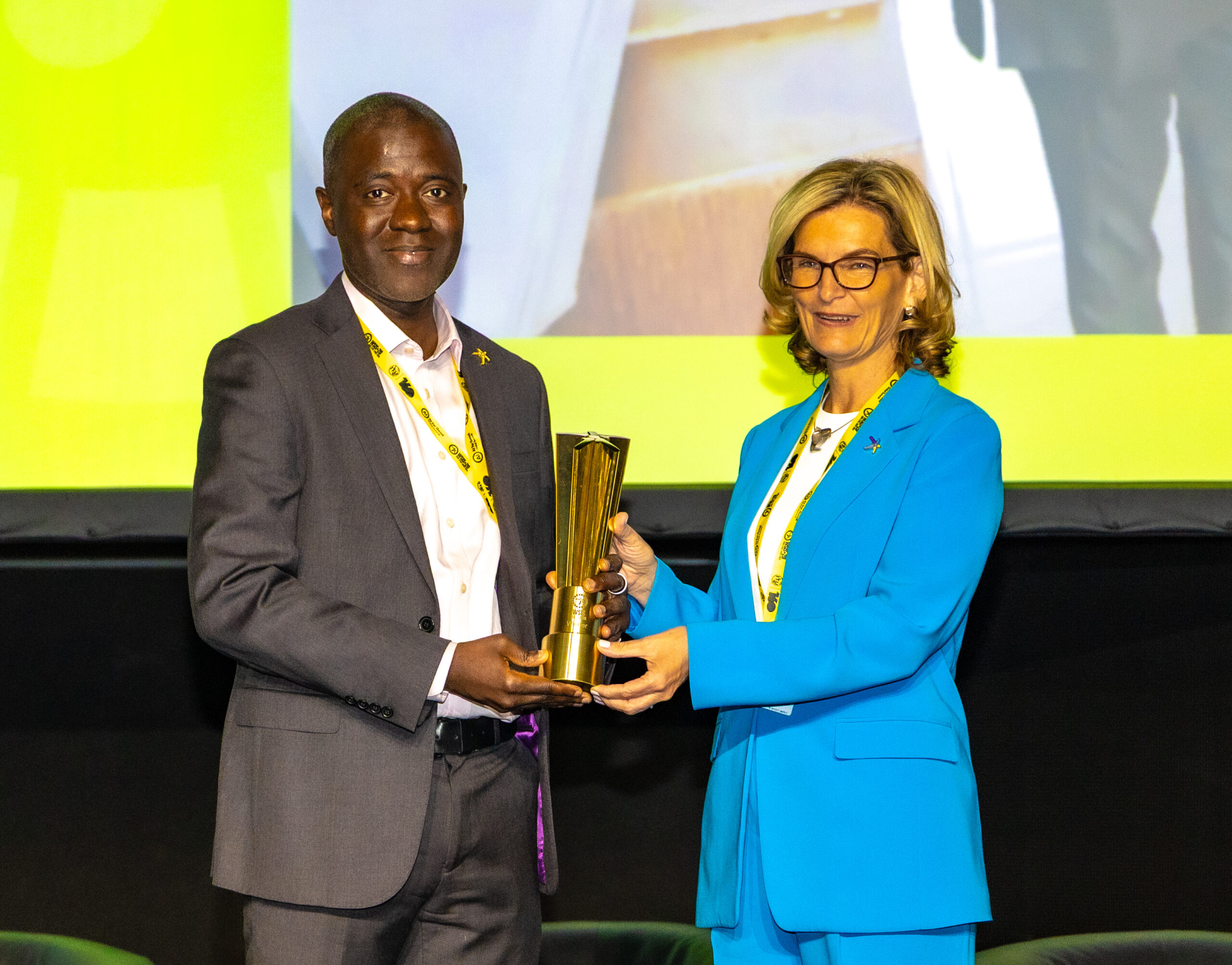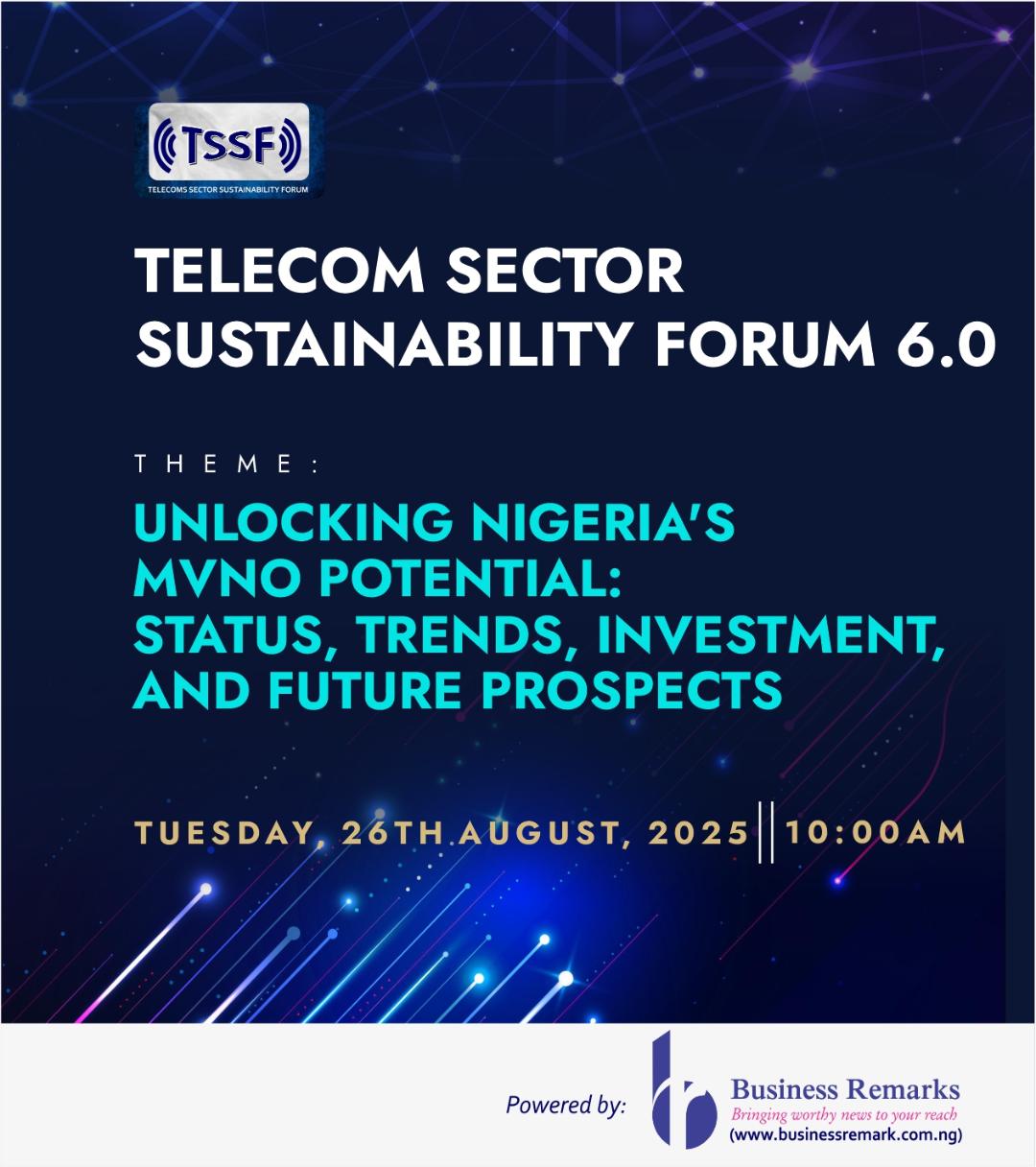Telecom
Salesforce Unveils Einstein Service Agent an Autonomous AI Agent which would Revolutionise Chatbot Experiences

Salesforce on Friday announced Salesforce’s first fully autonomous AI agent. Einstein Service Agent makes conventional chatbots obsolete with its ability to understand and take action on a broad range of service issues without preprogrammed scenarios, helping make customer service far more efficient.

Unlike traditional chatbots — which can only handle specific queries that have been explicitly programmed into their system and don’t understand context or nuance — Einstein Service Agent is intelligent and dynamic. Built on the Einstein 1 Platform, Einstein Service Agent interacts with large language models (LLMs) by analysing the full context of the customer’s message and then autonomously determining the next actions to take.
It uses generative AI to create conversational responses — grounding its responses in a company’s trusted business data, including Salesforce CRM data — tailored to a company’s brand voice, tone, and guidelines with a few clicks. For service organisations, this means they can offload a large number of tedious inquiries that bog down their productivity so they can focus on tasks that require a human touch. For customers, this means they get the answers they need much faster because they no longer need to wait for human agents.
Einstein Service Agent is standing ready 24/7 to communicate with customers in natural language, respond across self-service portals and messaging channels, and perform tasks proactively while operating within clear guardrails that companies can define using the Einstein 1 Platform. And when more complicated, high-touch issues arise, requiring escalation to a human worker based on the parameters set by the company, Einstein Service Agent performs the handoff quickly and easily.
Currently in pilot and generally available later this year, Einstein Service Agent can be set up in minutes with user-friendly interfaces, pre-built templates, and low-code actions and workflows.
“Salesforce is delivering a future where human and digital agents join forces to improve the customer experience,” said Linda Saunders, Head Solution Engineering for Africa. “Einstein Service Agent, our first fully autonomous AI agent, will not just complete service jobs on its own; it will augment how human agents work and completely transform how service teams operate, making them far more efficient and productive. We are reimagining customer service for the AI era.”
Studies show most companies use chatbots today, but 81% of customers would rather wait to speak to a live agent because the current generation of chatbots aren’t meeting their expectations and the experience can be frustrating. Yet, 61% of customers say they’d rather use self-service to resolve simple issues, underscoring an opportunity and need to deliver more intelligent, autonomous agents powered by generative AI.
Einstein Service Agent has fluid, intelligent conversations with customers. It uses its reasoning engine to interpret and process information to provide answers and solve problems for customers. The advanced reasoning engine interacts with LLMs by analysing the full context of the customer’s input to understand their intent, drawing logical inferences from the data, and connecting various pieces of information to determine the right set of actions to take.
Einstein Service Agent executes those actions and uses generative AI to create responses that align with a company’s brand voice, tone, and guidelines.
Einstein Service Agent grounds its responses in a company’s trusted business data, including Salesforce CRM data. Using Data Cloud and Unified Knowledge, companies can even integrate data and knowledge from third-party systems, like SharePoint, Confluence, Google Drive, and company websites and files, to help Einstein Service Agent generate accurate responses that are personalised to every customer’s specific needs and preferences.
Einstein Service Agent is built on the Einstein 1 Platform and leverages the Einstein Trust Layer to perform functions like masking personally identifiable information (PII) and defining clear parameters and guardrails for Einstein Service Agent to follow.
Einstein Service Agent doesn’t require thousands of lengthy structured dialogues for setup. It can be turned on in minutes with its out-of-the-box templates, Salesforce components, and an LLM. Companies can even reuse existing Salesforce objects, like flows, Apex code, and prompts, to equip Einstein Service Agent with skills faster and create custom actions that are specific to their business needs using a low-code builder and natural language instructions to save time and money.
Einstein Service Agent can assist customers anytime across self-service portals and messaging channels, like WhatsApp, Apple Messages for Business, Facebook Messenger, and SMS. Because Einstein Service Agent understands text, images, video, and audio, customers can send photos when their issue is too difficult to explain in words.
If an inquiry is off topic or falls outside of Einstein Service Agent’s scope, it will easily transfer the conversation to a human agent using Service Cloud. The human agent will have full context of the conversation and can pick up where Einstein Service Agent left off without asking the customer to repeat themselves.
Telecom
NCC Wins Global ICT Award for Digital Awareness in Schools

Nigeria, through the Nigerian Communications Commission (NCC), has won the 2025 World Summit on the Information Society (WSIS) prize for its project, the Digital Awareness Programme (DAP), under Category C3, which is on Access to Information and Knowledge.

L–R: Executive Vice Chairman/CEO of the Nigerian Communications Commission (NCC), Dr. Aminu Maida, receives the WSIS 2025 Prize (Category C3: Access to Information and Knowledge) from the Secretary-General of the International Telecommunication Union (ITU), Doreen Bogdan-Martin, following the selection of the Commission’s Digital Awareness Programme (DAP) as winner of the category.
The DAP, one of hundreds of projects submitted for the WSIS Prizes competition 2025, received the highest number of votes in its category, earning it the top honour. The programme equips secondary schools across the country with Information and Communication Technology (ICT) resources and provide internet connectivity to support teaching, learning, and research. Since inception in 2006, over 300 schools across Nigeria’s six geopolitical zones have benefitted from the programme.
The Executive Vice Chairman of the NCC, Dr. Aminu Maida, received the award during the WSIS Prizes Winners 2025 Ceremony held on Monday in Geneva, Switzerland.
In his acceptance remarks, Dr. Maida thanked the hosts, the International Telecommunications Union (ITU) and WSIS, for recognising Nigeria’s efforts in promoting inclusive digital access across Nigeria, noting that the award would serve as further motivation for the Commission.
“This recognition is more than a celebration of past efforts—it is an encouragement to press forward. It affirms that investing in digital inclusion is investing in national development, and that Nigeria’s work is being seen and valued on the global stage,” Dr. Maida said.
Four other Nigerian projects—the Women Techsters and the Advanced Digital Empowerment Programme for Tertiary Institutions (ADEPTI) under Capacity Building, the Telecom-Based Research Grant Initiative under Enabling Environment, and the Digital Learning Initiative under e-Learning—were also celebrated for their nomination for the Champions Category of Projects at the WSIS Prizes Ceremony. Although they were not among the top-voted entries, they were acknowledged for their significant merit and impact.
The WSIS Prizes competition recognises and promotes projects that effectively leverage ICTs to advance sustainable development. The competition showcases how technology can serve as a powerful tool for addressing global challenges and achieving the SDGs. Projects from around the world are recognised annually, highlighting diverse approaches to building an inclusive information society.
The World Summit on the Information Society (WSIS) is a United Nations (UN) initiative aimed at building a people-centred, inclusive, and development-oriented information society. It provides a multi-stakeholder platform to address issues related to Information and Communication Technologies (ICTs) and their role in achieving sustainable development.
The Forum is an annual event that brings together high-level representatives from governments, the private sector, civil society, academia, the technical community, and international organisations. It serves as a global platform for implementing the WSIS Action Lines, which are aligned with the UN Sustainable Development Goals (SDGs).
Telecom
No More Excuses: NCC Sets Tough August Deadline to Tackle Telecom Hitches

Nigerian Communications Commission (NCC) has given telecom tower operators in the country August 2025 deadline to fix persistent network hitches in their facilities or face regulatory sanctions.

The Executive Vice Chairman (EVC) of the commission, Dr. Aminu Maida, reportedly gave the ultimatum during a high-level meeting with key industry players, attended by representatives of IHS Towers, American Tower Corporation (ATC), and Pan-African Towers, and mobile network operators (MNOs) last Thursday in Abuja
According to sources, discussions at the meeting focused on the recurring challenges in the telecoms sector, particularly power failures, equipment malfunctions, and insufficient site maintenance, that have been causing poor Internet and call services in the country
Specifically, Maida tasked the tower operators on the imperative of complying with the NCC’s updated Quality of Service (QoS) framework, which now extends performance obligations to infrastructure providers, not just telecom service providers.
According to him, the timeline given by the commission is more than enough time for all parties to align with the performance standards expected of them.
Recently, to ensure compliance with the standards, the NCC introduced a Major Incident Reporting Portal for real-time outage disclosures; developed public performance dashboards to enhance transparency; mandated that telecom tower companies meet strict Key Performance Indicators (KPIs).
Although the tower operators had previously cited delayed payments from MNOs as a reason for service lapses, the NCC had dismissed the justification, insisting that all parties must meet their obligations.
The EVC maintained: “Operators must fulfill both their technical and financial responsibilities. Poor service delivery—regardless of internal disputes—will attract consequences.”
Available data on the telecom tower infrastructure shows that IHS Towers has the largest assets with 16,000–19,000 sites, (62% market share); compared to American Tower Corp’s (ATC’s) about 8,270 towers; and Pan-African Towers’ 760–1,000 sites nationwide.
The latest NCC’s August deadline is believed to be putting pressures on the tower operators to improve the quality of their facilities for improved services as the commission had hinted of its plan to sanction defaulting operators with fines or stricter regulatory actions.
Industry experts believe that the NCC’s directive is a welcomed development as it will ensure reliable Internet connectivity and improved services quality for telecom consumers in the country.
Telecom
NCC to Chart MVNO Growth Path at Telecom Sustainability Forum 6.0

Nigerian Communications Commission (NCC) is set to play a pivotal role at the upcoming 6th edition of the Telecom Sector Sustainability Forum (TSSF 6.0), where it will lead a critical discussion on the sustainable growth of Mobile Virtual Network Operators (MVNOs) in Nigeria.

Set against a backdrop of innovation and opportunity, this forum, organized by Business Remarks, aptly themed “Unlocking Nigeria’s MVNO Potential: Status, Trends, Investment, and Future Prospects,” is scheduled for August 26, 2025. This event reinforces the nation’s commitment to fostering a robust, competitive, and inclusive telecommunications landscape.
The forum will bring together a diverse array of key stakeholders from across the telecom ecosystem to deliberate on strategies for integrating MVNOs effectively into Nigeria’s rapidly evolving digital economy. With the recent advancements in technology and the issuance of 43 MVNO licenses to new players, MVNOs are poised to significantly enhance service delivery, drive digital transformation, penetrate underserved markets, and stimulate healthy competition across the sector.
As the global MVNO market is experiencing significant growth, with projections indicating continued expansion, experts believe that with the right regulatory environment and access to infrastructure, emerging markets like Nigeria can leverage MVNOs to unlock new value for both operators (by utilizing excess network capacity) and customers. Customers can enjoy a rich array of niche value-added services tailored to their needs.
Having been proactive in introducing a five-tier MVNO licensing classification, each with distinct services and a 10-year validity period, signaling a clear path for new entrants, the telecom regulator (NCC) will deliver a keynote address outlining the Commission’s regulatory framework, interventions, and commitment to ensuring a conducive environment for MVNO operations.
Mrs. Bukola Olanrewaju, Convener of the forum and Managing Editor of Business Remarks, emphasized the importance of collaboration. “TSSF 6.0 is designed to be a melting pot of ideas, bringing together Mobile Network Operators (MNOs), MVNOs, telecoms infrastructure providers, Internet Service Providers, industry associations, and technology experts,” she said.
“Our goal is to ignite discussions that will shape the future of MVNOs in Nigeria, ensuring their sustainable growth and their critical role in extending digital prosperity across the nation.”
The forum will feature interactive sessions, thought-provoking panel discussions, insightful paper presentations, and abundant networking opportunities. This event aims to provide a platform for stakeholders to share insights, address challenges, and explore collaborative pathways for sustainable growth.

 Telecom1 day ago
Telecom1 day agoY’ello Care’s 21-Day Campaign Bridges Digital Divide for Thousands Nationwide

 General News1 day ago
General News1 day agoEnugu Air Commences Operations Today

 E-Business1 day ago
E-Business1 day agoGalaxy Backbone, Rural Electrification Agency Commit to Deepening Digital and Energy Access Across Nigeria

 Broadcasting1 day ago
Broadcasting1 day agoNDPC Slaps Multichoice with ₦766M Fine for Data Privacy Violations

 News1 day ago
News1 day agoLagos-Calabar Highway Gets $100M Push from ECOWAS to Drive Regional Growth

 Telecom1 day ago
Telecom1 day ago20 Years of Digital Leadership: Layer3’s Legacy and the Road Ahead

 News1 day ago
News1 day agoNBS May Release Rebased Figures for Nigerian Economy July 11

 E-Financial14 minutes ago
E-Financial14 minutes agoCBN Sets Record Straight on Diaspora BVN Fee, Confirms No Hidden Charges



























